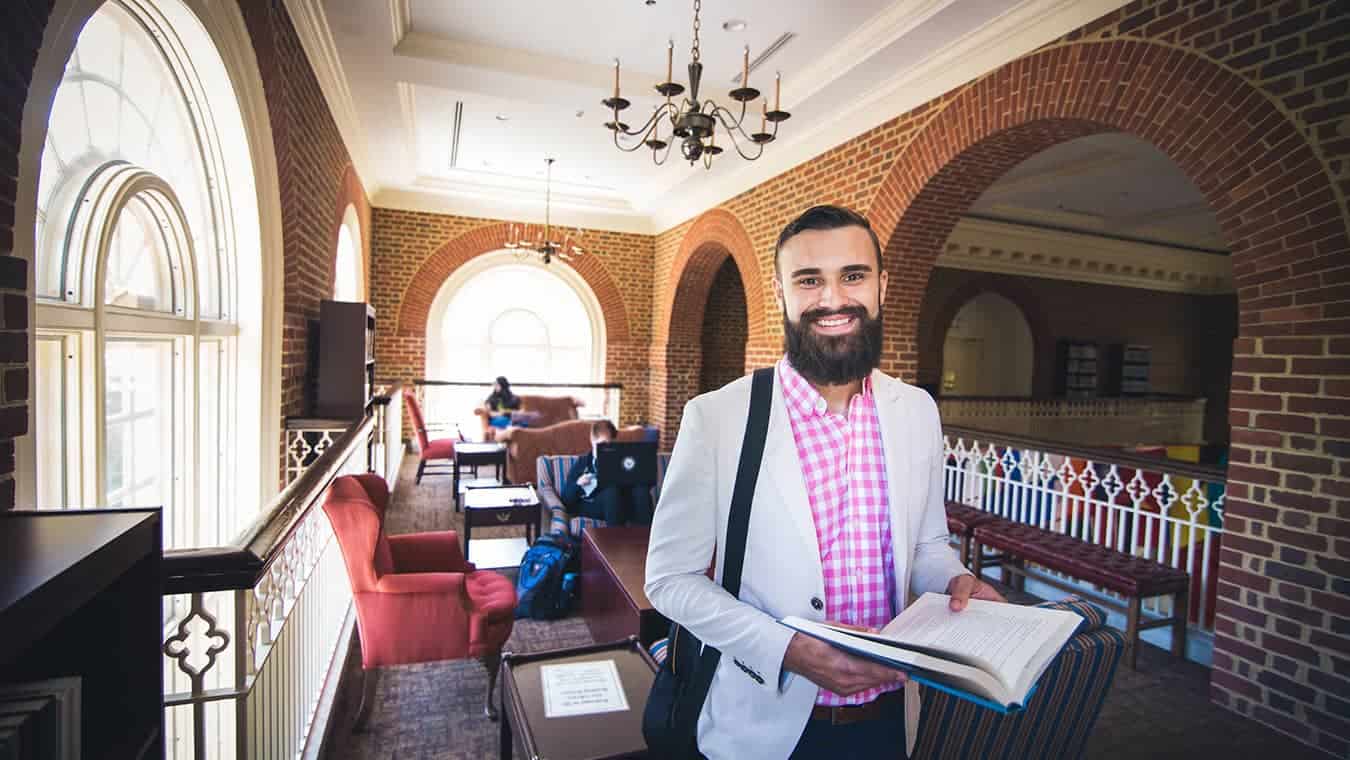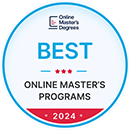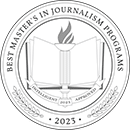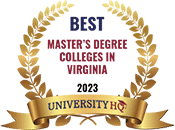
M.A. in Journalism
Report the Truth. Do It Well. Pursue an Online Master’s in Journalism.
The Master of Arts in Journalism is designed to immerse you in the fast-paced world of converging media. Presented from a Christian worldview, it will equip you with the latest reporting and technical skills for both traditional and digital media application. In addition, this online masters in journalism degree includes social media and internet marketing, helping you to deepen audience engagement.
Increase Your Earning Potential
Advance in leadership roles with higher salary opportunities.
Expand Your Expertise
Gain advanced knowledge in traditional and multiplatform reporting, and mobile field production.
Gain Practical Experience
Learn how to get work published in professional media outlets.
Access Faculty Expertise
Be mentored by faculty members who teach on campus in Virginia Beach.
Please complete the Request Information form on this page to learn more about this program.
On completing the online master’s in Journalism, you can:
- Gather data, write and edit news reports for multiple media platforms (print, television, and new media).
- Write features and editorials on business, politics, national affairs, and more.
- Apply current internet, social media, and mobile media marketing strategies to drive audience engagement.
Career Opportunities
- Journalist
- Editor
- Media producer
- Press secretary
- Advertising & public relations specialist
- Social media manager
2023-24 Semester Check-In Deadlines
All students are expected to check-in for the semester two weeks before the session start date. Students should apply, be accepted, enroll in their first courses, and confirm a plan to pay for their courses prior to this date.
| Session | Semester Check-In | Session Start Date |
|---|---|---|
| Session A | Friday, August 11 | Monday, August 21 |
| Session M | Friday, September 8 | Monday, September 18 |
| Session B | Friday, October 13 | Monday, October 23 |
| Session C | Thursday, January 4 | Monday, January 8 |
| Session T | Friday, January 26 | Monday, February 5 |
| Session D | Friday, March 1 | Monday, March 11 |
| Session E | Friday, April 26 | Monday, May 6 |
| Session F | Friday, June 7 | Monday, June 17 |
Admissions Requirements
Step 1: Apply to Regent University
Submit your application using the Regent University Online Application.
Note: If you are unable to complete our application due to a disability, please contact our Admissions Office at 757.352.4990 or admissions@regent.edu and an admissions representative will provide reasonable accommodations to assist you in completing the application.
Step 2: Submit Your Unofficial Transcripts
Submit your unofficial transcripts to regent.edu/items.
Upon submitting your application, you will receive an email requesting authorization for Regent University to obtain your official transcripts from your U.S. degree-granting institution. International transcripts must be evaluated by a NACES, AACRAO or NAFSA approved agency.
Step 3: Submit Your Government-Issued ID
To ensure academic integrity, Regent University requires a copy of a government-issued ID. Please submit a scanned copy or photograph of it to regent.edu/items.
Please feel free to contact the Office of Admissions at 757.352.4990 or admissions@regent.edu should you have any further questions about the application process.
Note: All items submitted as part of the application process become the property of Regent University and cannot be returned.
Part-Time Students
| Degree | Tuition Cost Per Credit Hour | Average Credit Hours Per Semester | Average Tuition Per Semester |
|---|---|---|---|
| Master of Arts (MA) | $670 | 6 | $4,020 |
| Master of Fine Arts in Film & Television Production (MFA) | $670 | 6 | $4,020 |
| Master of Fine Arts in Screenwriting (MFA) | $670 | 6 | $4,020 |
| Master of Fine Arts in Acting (MFA) | $920 | 6 | $5,520 |
| Doctor of Philosophy in Communication (PhD) | $950 | 3 | $2,850 |
| Doctor of Strategic Communication (DSC) | $950 | 3 | $2,850 |
Full-Time Students
| Degree | Tuition Cost Per Credit Hour | Average Credit Hours Per Semester | Average Tuition Per Semester |
|---|---|---|---|
| Master of Arts (MA) | $670 | 9 | $6,030 |
| Master of Fine Arts in Film & Television Production (MFA) | $670 | 9 | $6,030 |
| Master of Fine Arts in Screenwriting (MFA) | $670 | 9 | $6,030 |
| Master of Fine Arts in Acting (MFA) | $920 | 9 | $8,280 |
| Doctor of Philosophy in Communication (PhD) | $950 | 6 | $5,700 |
| Doctor of Strategic Communication (DSC) | $950 | 6 | $5,700 |
Student Fees Per Semester
| University Services Fee (On-Campus Students) | $850 (Fall & Spring) $700 (Summer) |
| University Services Fee (Online Students) | $700 |
PART-TIME STUDENTS
| Degree | Tuition Cost Per Credit Hour | Average Credit Hours Per Semester | Average Tuition Per Semester |
|---|---|---|---|
| Master of Arts (MA) | $670 | 6 | $4,020 |
| Master of Fine Arts in Film & Television Production (MFA) | $670 | 6 | $4,020 |
| Master of Fine Arts in Screenwriting (MFA) | $670 | 6 | $4,020 |
| Master of Fine Arts in Acting (MFA) | $920 | 6 | $5,520 |
| Doctor of Philosophy in Communication (PhD) | $950 | 3 | $2,850 |
| Doctor of Strategic Communication (DSC) | $950 | 3 | $2,850 |
Full-Time Students
| Degree | Tuition Cost Per Credit Hour | Average Credit Hours Per Semester | Average Tuition Per Semester |
|---|---|---|---|
| Master of Arts (MA) | $670 | 9 | $6,030 |
| Master of Fine Arts in Film & Television Production (MFA) | $670 | 9 | $6,030 |
| Master of Fine Arts in Screenwriting (MFA) | $670 | 9 | $6,030 |
| Master of Fine Arts in Acting (MFA) | $920 | 9 | $8,280 |
| Doctor of Philosophy in Communication (PhD) | $950 | 6 | $5,700 |
| Doctor of Strategic Communication (DSC) | $950 | 6 | $5,700 |
Student Fees Per Semester
| University Services Fee (On-Campus Students) | $850 (Fall & Spring) $700 (Summer) |
| University Services Fee (Online Students) | $700 |
*Rates are subject to change at any time.
Whether you are a prospective student or a current student, your questions matter. Please take a few moments to skim our Frequently Asked Questions. If you cannot find the answer to your question, please contact us.





